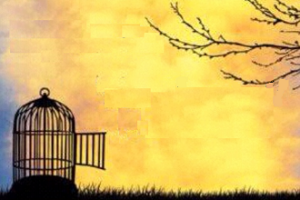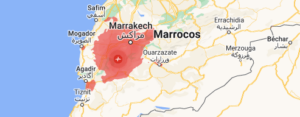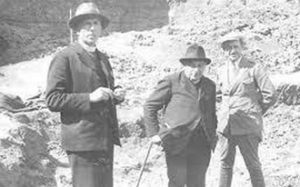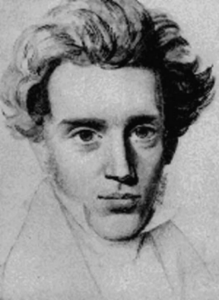
Arquivo para September, 2023
Civilization, crisis and anger
The civilizing process, which involved wars and wars, was also marked by other major crises, coincidence or not, simple natural fact or divine intervention, the black plague from 1347 to 1353 which killed 50 million people, a high number for the population at the time. , anticipates a moment of crisis at the end of the Middle Ages and the beginning of the Renaissance.
wars, was also marked by other major crises, coincidence or not, simple natural fact or divine intervention, the black plague from 1347 to 1353 which killed 50 million people, a high number for the population at the time. , anticipates a moment of crisis at the end of the Middle Ages and the beginning of the Renaissance.
Today there is no correction that can be called “cynical” given the current connotation of the word, but Sloterdijk’s Critique of Cynical Reason applies well to skeptics: they do not believe in any morality, they do not believe in civility, and they bring anger and social anger leads to contempt.
The political event is the fall of Constantinople, on May 29, 1453, which gave rise to the Ottoman Empire, which later expanded throughout Europe, putting an end to the Byzantine Empire, of course together with a cultural movement that revived classical Greek teaching.
Also at the beginning of the First World War we had the Spanish flu, of course a correlation between epidemics, crises and wars is not so simple and easy to understand, however the fact that periods of civilizational crises led to wars and the birth of new empires is a fact , after all, after the fall of Constantinople, the Turkish-Ottoman Empire was born, which was until the first world war.
The existence of hate, of intolerance is practically inherent to wars, there is no shortage of justifications for a certain type of “justice”, there are several arguments for hate, for peace there is only one: love of life and appreciation for the civilizing process, perhaps it is time to reverse the logic of war: conquest.
We will only enter into a civilizing process worthy of humanity, if we abandon the primitive methods of correcting errors and injustices, almost always subject to narratives, a true process of human development worthy of the name cannot be carried out with the practice of wars and genocides with attempts to euphemisms that soften the cruelty.
The book of Ecclesiasticus says (Eccl 17:33): “Resentment and anger are detestable things, even the sinner seeks to dominate them”, and error must always give way to forgiveness and reconciliation, how many times? The biblical reading says: “seventy times seven” (Mt 18,21).
The developing process points to the outbreak of a war whose consequences are very worrying due to the power of weapons, technologies and global involvement.
There is always a possible opposite attitude, a virtuous circle is always possible, will it come?
Stoics, Epicureans and Cynics
Seneca was a lawyer and a great writer, but he was questioned a lot and is still Nero’s tutor today, it is good to remember that legend or fact Nero condemned him to suicide for treason, and the philosopher was consistent with his theory against anger and did so patiently.
questioned a lot and is still Nero’s tutor today, it is good to remember that legend or fact Nero condemned him to suicide for treason, and the philosopher was consistent with his theory against anger and did so patiently.
His phrase is also famous: “If I decided to go through one of the current republics one by one, I would not find any capable of tolerating the wise man or one that the wise man could tolerate”, he was thus aware of his time and perhaps this is the reason why he is returning “the fashion”.
He was different from the Epicureans because he defended the public involvement of philosophers, after all this was the first argument in Plato’s time to found his academy, but Seneca even stated in “The Retreat”, that in certain circumstances it would be better to withdraw from public life, but this never meant an omission, and he explains it in “The Withdrawal” this way:
“We float, being tossed from side to side; desired things, we abandon; what was put aside, we resume. Thus, we alternate in a permanent flow of voluptuousness and regret. We are entirely conditioned by the opinions of others.”
In times of polarization, not always rational, it is also a reason for him to come back to the fore.
In addition to the Epicurean “purists” and the “retired” Stoics like Seneca, there are the Cynics, while the former valued “natural” aspects, the behavior of the Cynic philosophers pointed to a philosophical distinction between natural aspects (physis) and human customs. (nomos), a problem that permeated all the philosophical thought of Ancient Greece, reaching, in a certain way, also to the nominalists and realists of the Middle Ages.
I remember the critique of cynical reason, the work of Peter Sloterdijk, to say that the problem is current and it is no coincidence that these currents resurface, although updated by social and political problems, they point to a civilizational crisis.
The society that tries to eliminate pain, suffering, that worships “nature” is also reminiscent of the Stoics, those that try to destroy human culture and customs are reminiscent of the cynics, it must be said here that it does not mean the common sense of saying the which is not true.
Antisthenes, from Athens, and Diogenes, from Sinope, were the first cynics, they lived despising the customs and “sages” of their time, Sloterdijk says that today “is not a time suitable for thought” and in a way he is right, Cynicism comes from the Greek word kynikos, which means dogs because of the way they lived abandoned on the streets and often begging for alms.
In these thinkers there is a background of reason why they should be studied, they knew the crisis that the civilization of their time was going through, they were looking for a happy life within a troubled society and away from the false problems of their contemporaries, but Seneca and others did not omit themselves in public life, which is why they taught to value suffering and understand why.
The wrath and tranquility of the soul
The Stoic Seneca not only wrote Wrath but
also about the Tranquility of the soul, you can find a current edition with his other book “the tranquility of the soul”, does not mean the absence of restlessness, pain or errors.
He writes in his book I, still about Anger: “Thus, some wise men said that anger is a brief insanity. She is equally unrestrained, alien to decorum, forgetful of emotional ties, persistent and clinging to what she started, closed to reason and advice, incited by vain reasons, incapable of discerning what is just and what is true, very similar to something that collapses and collapses. it shatters on top of what it has crushed.” (Seneca, 2014, p 91).
Although we can hide feelings, Wrath strips us bare, animal ferocity is even shown in appearance, since its “control” argued by some authors is uncertain: “But to prove the insanity of those in the power of wrath, observe the wrath itself. their appearance, as clear symptoms of madmen are the bold and threatening appearance, the sinister countenance, the slanted face, the hurried step, the restless hands, the changed color, the successive sighs…” (Seneca, 2014, p 91).
He is not unaware that other passions can also expose us: “I am not unaware that other passions are also difficult to hide; that lust, fear and audacity give signs of themselves and can be sensed.” (p. 92), but these also emerge amid widespread anger.
He does not ignore Aristotle’s vision, as some authors hastily assume: “To be harmful, we are all powerful. Aristotle’s definition is not far from ours. For he states that anger is the desire to return pain. Finding the difference between this definition and ours would require a long explanation” (p. 94), so he also knows that there are differences.
Without going into exaggerated altruism, he knows that we are irascible, subject to some anger, but he explains it like this: “It has been sufficiently explained what anger is. How it differs from irascibility is evident: as a drunkard differs from someone who is intoxicated, and a fearful person from someone who is afraid” (p. 95), so there is an angry person, who may sometimes not be angry.
It examines whether anger is our nature, and thus in some way necessary, for example for correction, differentiates it: “But this without anger, based on reason, for it is not harmful, but it heals under the appearance of being harmful” (p. 97), it is the doctor who cures, not how to take revenge.
But was it sometimes useful? Remember that “The beginning of certain things is in our power, their subsequent stages overwhelm us with their strength and do not allow for return” (p. 98) and this is also the cause of injustices that awakens new anger and new furies, so it does not cure. Brian Wildsmith’s sun is powerful but benevolent (his drawing above).
Seneca. (2014) Sobre a ira. Sobre a tranquilidade da alma diálogo, transl. José Eduardo S. Lohner, 1a ed. São Paulo, Brazil: Penguin Classics, Companhia das Letras. (pdf in portuguese)
Exemption from violence and anger
It was not the Abrahamic religions (Islam, Judaism and Christianity) that exempted violence, as Peter Sloterdijk thought in Wrath and Time (Sloterdijk, 2010), in fact it was the idea of the Enlightenment that made violence and domination, from the beginning of expansion of mercantilism and which later became colonial-imperialism, which was anti-clerical and little religious, and was later sacralized in Hegel’s “absolute”, whose image of power and the State is juxtaposed with power and domination and has nothing linked to God.
Judaism and Christianity) that exempted violence, as Peter Sloterdijk thought in Wrath and Time (Sloterdijk, 2010), in fact it was the idea of the Enlightenment that made violence and domination, from the beginning of expansion of mercantilism and which later became colonial-imperialism, which was anti-clerical and little religious, and was later sacralized in Hegel’s “absolute”, whose image of power and the State is juxtaposed with power and domination and has nothing linked to God.
Thus this power is the relief from violence and its capture and guardianship by the state, this way the colonial and imperialist plan can be developed, the basis of today’s civilizational crisis, it is a military and autocratic arrogant state, liberal only in name, it cannot result in something else: anger.
Sloterdijk’s observation about lightness and relief is particularly clear. Supposing that progress would go on a progressive journey, we would think of a more trivial answer that he would be leading people in better conditions than before, and this is not true.
The author also talks about pain, he remembers that until 1940 the idea of pain was normal in surgical center treatments, he doesn’t mention it but I remember that scars on men’s faces indicated virility and some were done on purpose, predecessors of current tattoos, the author remembers that painkillers appeared in the 40s and then little by little antidepressants and stimulants and finally plastic surgeries that corrected what needs to be corrected in us.
The author says that thinking on the right is discipline and on the left is the salvation of the poor, discipline falls into dreams and leads to the world of the moon, while poverty in its fallen condition, persecuted by an unjust system is always seen victimized, which is not always real, so both narratives escape a concept of justice, peace and balance and we find ourselves in narratives that justify anger and contempt for the Other, moving towards anger.
If the being must be light it is to be someone who is not serious, so the lightness of the being is unsustainable, it must be in both narratives “heavy”, transforming into gas balloons that are flying aimlessly, the flight itself is not is reasonable, although the ultimate desire is everything can, but nothing is.
If the being must be light it is to be someone who is not serious, so the lightness of the being is unsustainable, it must be in both narratives “heavy”, transforming into gas balloons that are flying aimlessly, the flight itself is not is reasonable, although the ultimate desire is everything can, but nothing is.
The popular Brazilian songbook says: “there is no sin on the side below the equator”, but that was already the case in post-Renaissance Europe, in Dante’s “divine comedy” which became Balzac’s human comedy, it was there that did the circumnavigation (in picture the Art for Jacob Hashimoro), yes the earth is round, so the people should be dominated and colonized, again Slotertijk’s spherology makes sense.
The fundamental event of our time is to get out of this heavy burden of dogmatism, from the perfectionist stress of the tired society, to get out of the physical, discursive, political, design and spatial battles, technology for man and not for man, robots are machines.
It’s the agony of what was heavy and no longer has a coherent narrative. spherology is based on the principle that a kind of “hermeneutics of existence” must form art of figures, meanings and vocabularies of a light existence, let’s say, discharged from hatred for the Other who is not our mirror, of course the reverse path is there, he leads to anger and violence.
Sloterdijk, P. (2010) Rage and Time, translation by Mario Wenning, New York, Columbia University Press.
The cold war is heating up
It seems like a paradox, but it is not, as the fact is that Europe and the entire northern hemisphere are heading towards autumn and then winter and in the middle of the cold the limits of ideological polarization seem to go beyond, new weapons, narratives of victories on battlefields, etc.
that Europe and the entire northern hemisphere are heading towards autumn and then winter and in the middle of the cold the limits of ideological polarization seem to go beyond, new weapons, narratives of victories on battlefields, etc.
Not even the tragedy in Morocco (photo), despite the condolences, seems to awaken a greater feeling of solidarity among the people, sub-Saharan Africa itself is heating up with coups and new military dictatorships.
The expansion of the Brics economic bloc also strengthens this polarization, despite the G20 meeting, a more diverse bloc, the possible creation of a new currency and new geopolitics point to a conflict that has already resulted in coups and authoritarian regimes, it does not mean that this diversification of currencies and new economic and political forces should not exist, but they should favor the diplomatic field and the establishment of peace.
On the front of the most declared battle, Russia announces an imposing weapon, not by chance called Satan II, capable of transporting several missiles at the same time without bothering with demonic names, on the front of the war a general called Armageddon, Sergey Surovikin, was sent. , who worked in Syria and against demonstrations in Russia, is now at the front.
On the side of Ukraine, whose counteroffensive is slower than expected, new weapons with weakened uranium have been received from the USA, while it trains pilots of its allies’ new fighters, a more aggressive change of tactics should take place before winter.
There is a weakened peace front, the president of Turkey tried to reach a new agreement to release the grain leaving Ukraine through the Black Sea, but apparently without success and a large grain producer in Ukraine died with his family when a missile hit his house in Odessa, Olesky Vadatursky.
Propaganda of deeds in war are also growing on the Web, peace seems distant and the spirits and voices of balance and common sense seem suffocated, there is always hope and peace.
Urgent: earthquake in Morocco
The news began to emerge in the early hours of  Brazil, an earthquake measuring 6.8 on the Richter scale hit the center of Morocco approximately halfway between the historic cities of Agadir and Marrakech, the region is called Adassil, according to the country’s interior ministry 820 people have already died (the number exceeded 2000 in the early hours of Sunday), 672 people have been injured and 205 are in serious condition, according to the latest information.
Brazil, an earthquake measuring 6.8 on the Richter scale hit the center of Morocco approximately halfway between the historic cities of Agadir and Marrakech, the region is called Adassil, according to the country’s interior ministry 820 people have already died (the number exceeded 2000 in the early hours of Sunday), 672 people have been injured and 205 are in serious condition, according to the latest information.
People rushed into the streets and the earthquake was felt in Portugal, Spain and Algeria, an aftershock of magnitude 4.9 was felt 19 minutes later.
According to the United States Geological Survey, the epicenter was in the mountains known as the High Atlas, 71 km from Marrakech, at a depth of 18.5 km, the city was heavily hit and has a historic center declared a world heritage site, it occurred in middle of the night, but online newspapers don’t give the exact time.
Several governments declared solidarity and promised help, the pain is hard, but it awakens solidarity, even Zelesnky from Ukraine and Putin from Russia declare their regret.
All solidarity with the Moroccan people, the under-20 Brazilian team is there and there were no injuries.
Error, correction and peace
The first thing that dies in a war is the truth, and this is bilateral, because the oppressed in retaliation will do things that they condemn to the aggressor.
this is bilateral, because the oppressed in retaliation will do things that they condemn to the aggressor.
Collective correction is possible if there are regulatory bodies capable of being impartial, when they too cannot get out of the bilateral error peace is increasingly distant, when measures of unilateral punishment are taken they are also agents of aggression, it does not mean that they should not impose sanctions and even courts where war crimes are tried.
This is why we are dealing this week with philosophical, legal and moral truth, the biggest and most serious mistake made when courts and public morality bodies become corrupted, it is a harbinger of established chaos and can lead to an escalation of war.
In terms of morality, one cannot forget and stop expressing personal mistakes, but punishment must go through stages or rounds of negotiation and circumvent the biggest problems of a dispute, it is difficult, but only impartial bodies and personnel can obtain this result .
As we discussed in the previous post, truth is ontological, it is realized with the existence of Being, but it is also Being, and this is not the ontological argument of Anselmo da Canterbury: “truth is the straightness of the object perceived by the mind. And what is righteousness? It is something to be what it is”, of course, and this Being that is being necessary “proves” the existence of God.
Anselm was actually from Aosta, Italy, he was called from Canterbury, because being a Benedictine monk he was called to be Archbishop of Canterbury, in England where he died, what is little known and should be better understood within the history of science is the influence of Boethius, famous for the “quarrel of universals” and a true genesis of the concepts of science.
All these temporary truths are important, Karl Popper’s argument of the falsifiability of science, as well as Thomas Kuhn’s structure of scientific revolutions only help to tend that there are ex-sistent truths and those that are eternal, which Boethius will propose as “universal ”, however it is not a relationship between subject and object, but pure Being, the universe itself if there was no Big Bang, the discoveries of James Webb seem to go in this direction, it does not invalidate the Being that is, the one that always was and always will be, but help her.
The prophet Micah, who announced the coming of the One who is, and said that he would be born in tiny Bethlehem, said in this way (Micah 5:1): “You, Bethlehem of Ephrath, little among the thousand towns of Judah, from you will come the one who will rule in Israel; its origin comes from remote times, from the days of eternity “, Micah lived approximately between 750 to 690 BC.
Regarding personal correction, the biblical proposal is valid for everyone (Mt 18,15-16): “If your brother sins against you, go correct him, but in private, alone with you! If he listens to you, you have won your brother. If he does not listen to you, take one or two more people with you, so that the whole matter may be decided on the word of two or three witnesses.”
Miquéias also recalls in the text that “He himself will be peace” (Micah 5,4) it is also ontological, without the recognition of the Being, of the dignity of each person (Boethius was the first to raise this question) there is no peace, there is no there is truth and not justice, although they use this against peace, nothing more unfair and wrong.
Language, truth and error
The most common is to understand truth as the  logical tautology that derives from the conception of scientific empiricism and mathematical syllogism,
logical tautology that derives from the conception of scientific empiricism and mathematical syllogism,
Modern philosophy has developed several conceptions of truth, currently seeking the adequacy of truth to ideological systems that came from Hegelianism and a conception of History, on these mistakes is the elaboration of Hans-Georg Gadamer, which in turn comes from the conception of truth as Heidegger’s Being.
From syllogism and logicism come idealist concepts of judgment and positivist law.
Truth is for Descartes: “Never accept anything as true that one does not know evidently as such” (Descartes, Discourse on Method), is thus the opposite of falsehood, very close to formal truth.
The utilitarian pragmatism of Stuart Mill is the opposite extreme of this (is ilogic), and is close to the conception of Hegel and Nietzsche, it is the relativist truth that dominates many current discourses.
Nietsche also remakes the Hegelian concept of historical truth for the concept of existence, although the positive concept seems simple to be refuted, the difficulty is to establish what is true and real, which in reality would be the same thing, but what is real? Often this adjustment is made ideologically, thus the narratives arise.
It is because of this difficulty that the true conjugate with morality arises, it makes sense in the context of moral realism. For example, “Oppression and exploitation are malevolent” is a moral truth within a humanist morality, and “Unholiness is sinful” is a moral truth within a religious morality, and this conjugation is resolved in relation to Being and language, and one can withdraw the veil, the concealment through a-letheia, the unveiling.
The Western conception of truth, so difficult to have a single definition, can be combined in the Western case with three roots, the Greek “aletheia” (a- no, occult lethe), which comes from what comes from the definition of what being is: “language is the house of Being” (Heidegger), Veritas, the Latin concept conjugated between logic/language (true and false) and Emunah (the ethical-moral concept) truth/fidelity and its negation infidelity, Augustine of Hippo: “ in the interior of every being dwells the truth”.
Mass over the world
Teilhard Chardin’s writing turned 100 years old  on September 3, 2023, it ended in the Ordos desert in Mongolia, the writing started in 1919 when he worked as a porter in the First World War, it was remembered by the pope who was in Mongolia on this date.
on September 3, 2023, it ended in the Ordos desert in Mongolia, the writing started in 1919 when he worked as a porter in the First World War, it was remembered by the pope who was in Mongolia on this date.
For years the writings of Teilhard Chardin were banned, but little by little they were removed and were published revealing a spirituality and an updated and real worldview, it was Chardin who popularized the word Noosphere by Volodymyr Vernasky.
This mass reads: “Lord, since once again, no longer in the forests of France, but on the steppes of Asia, I have no bread, no wine, no altar, I will rise above symbols to the pure majesty of the Real , and I, your priest, will offer you, on the altar of the whole earth, the work and suffering of the world “.
Chardin had completed his thesis on paleontology and was in Mongolia to collect fossils when he finished the work, as he was unable to hold a conventional mass there (pictured with Émile Licent, in the Ordos desert, Mongolia).
His best-known work is “The Human Phenomenon”, controversial because he develops his theology within an evolutionary conception, which infuriated the theologians of the time and which is still fought today in more fundamentalist Christian sectors, it is good to remember that Jesus used parables to explain things complex and that the evidence for the existence of man in primitive periods is already a fact and many biblical allegories are clear, such as those used in the Apocalypse.
In the mass written by Chardin there is the desire for a single humanity, attached to the love of incarnation and revisited in the holy Host of each mass: “Receive, Lord, this total Host that Creation, moved by Your call, presents to You in the new dawn. This bread of our effort is, in itself, I know, nothing more than an immense disintegration. Unfortunately, this wine of our pain is still nothing more than a dissolving drink. But at the bottom of this formless mass, you have placed — I am sure, because I feel it — an irresistible and sanctifying desire that makes us all cry out, from the impious to the faithful: “Lord, make us one!” “.
The desire to see all creation as one and linked to life and Love is the Creator’s deepest desire.
CHARDIN, P.T. La Messe sur le Monde. (in portuguese), 1923.
Another critique of Hegel
We have already outlined here several criticisms of Hegelianism, with its vices of German idealism, which in our view also affects the so-called Young Hegelians like Marx, but there is another possible rereading that is that of Soren Kieerkegaard (1813-1855) who is more contemporary with Marx and perhaps for this reason little read, since the great philosophical clashes took place in the German idealism of this period.
Hegelianism, with its vices of German idealism, which in our view also affects the so-called Young Hegelians like Marx, but there is another possible rereading that is that of Soren Kieerkegaard (1813-1855) who is more contemporary with Marx and perhaps for this reason little read, since the great philosophical clashes took place in the German idealism of this period.
However, a Hegelian reading of Kierkegaard is possible and who called my attention to this is a Brazilian “millennium” doctor, Natália Mendes, who, in addition to writing an award-winning doctoral thesis of the author, speaks with ease and propriety of the philosopher.
First, it is important that he writes and studies Greek metaphysics, and the author draws attention to the issue of being the “father of existentialism”, labels that hinder the study and perception of the great problems that the philosophers brought.
The author sees Kierkegaard’s depth in three fundamental axes: the ontological, the epistemic and the psychological, without denying and realizing the theological origin of some of his concerns, she clarifies the theme of anguish, which must be understood as “philosophical anguish” that is having the right questions and the right answers to them.
Here I explore a little-explored and non-secondary angle that is post-positivism, and post-philosophical logicism, perhaps one of Kierkegaard’s great anxieties about theology.
Before proceeding, I highlight a phrase of the philosopher about prayer: “The function of prayer is not to influence God, but especially to change the nature of the one who prays”, seems profound to me.
Returning to Kierkegaard’s logic, which I believe is appropriate for our millennium, in addition to not considering himself a philosopher, which would mean undergoing severe criticism of authors he criticized, he builds his own perspective and does not abandon literature, psychology and theology in it.
In order not to make a treatise on his truth, I quote two of his quotes: “There is no true truth that is not subjective, this is appropriate” and another: “There are two ways to be deceived. One is to believe what is not true; the other is to refuse to believe what is true.”
Kierkegaard, S. (1986). Textos selecionados. Seleção e tradução por Ernani Reichmann. Brazil, Curitiba: Editora Universidade Federal do Pará.


